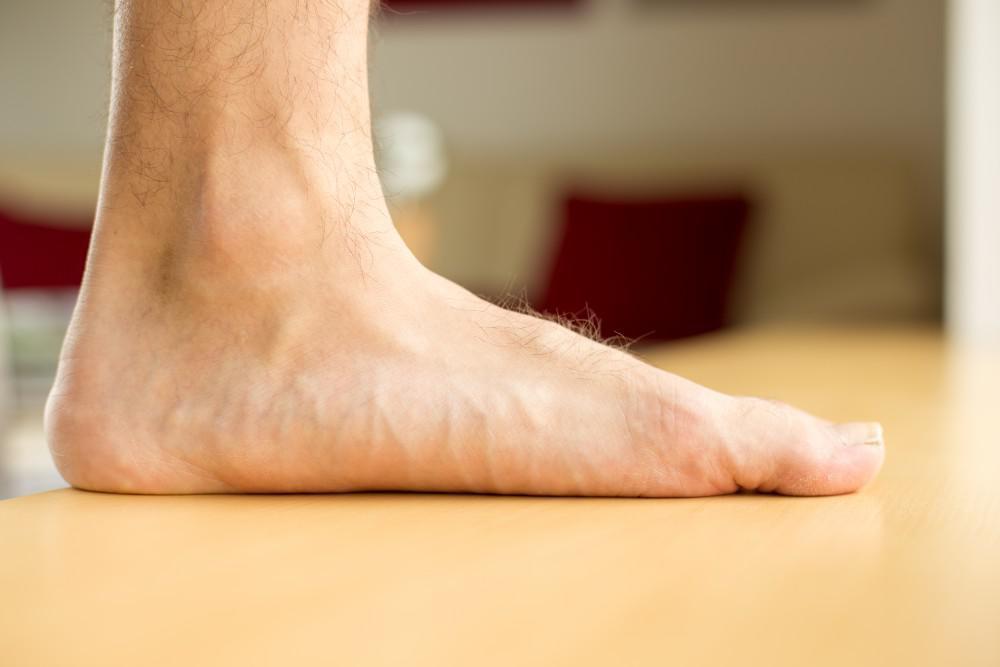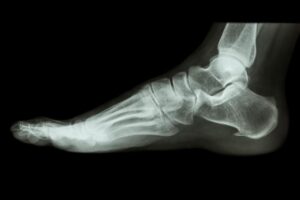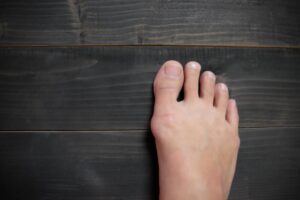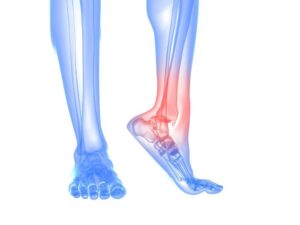The Link Between Obesity and Flat Feet

Think of how often you stand up, walk, and participate in other physical activities. Every time you stand up or bear weight, your feet are tasked with safely moving your entire body from place to place.
When you’re carrying excess weight, it takes more work for your feet to take every single step. As a result, being obese can often put you at a greater risk for developing foot problems like flat feet.
Our podiatrists at Arizona Foot Health in Phoenix, Arizona, Ryan Golub, DPM, and Zachary Flynn, DPM, AACFAS, further explain the link that can exist between obesity and flat feet.
What are flat feet?
Typical feet have an arch on the inside of them. When you have flat feet, your feet don’t have this arch and instead are mostly or completely flat.
You can have flat feet from a young age, or you can develop them later in life. They’re most common in adults over 40.
Initially, the structure of flat feet causes you to inwardly roll your ankle, then as your condition progresses, your feet can roll outward. These issues can cause foot, heel, and ankle pain and increase your risk of developing conditions like arthritis of the ankle.
Obesity and flat feet
There are a number of reasons you can develop flat feet. Some people inherit a greater likelihood of developing flat feet, and others develop flat feet as a result of the aging process, chronic conditions like arthritis and diabetes, ankle or foot injury, and improperly fitting shoes.
Obesity is another factor that can increase your risk of getting flat feet, as either a single or additional risk. Adults who are obese are more likely to have flat feet than adults who are not.
This is because carrying extra weight can change the structure of the foot, which can cause flat feet. You’re also more likely to have conditions like diabetes if you are obese, which further increases the risk of flat feet.
Can weight loss help flat feet?
If obesity is a primary cause of your flat feet, weight loss can help relieve any pain or other symptoms you’re experiencing from them. Losing weight reduces the amount of weight your feet need to bear, which helps reduce pain and stress on your feet.
No matter what the cause is of your flat feet, our podiatrists offer a number of treatment options if your flat feet are causing pain or medical conditions. Conservative treatments they prescribe include custom orthotics, physical therapy, and special stretching routines.
When conservative solutions aren’t enough, our team offers reconstructive surgery that fixes your flat feet and helps restore the arch. Dr. Flynn and Dr. Golub perform a number of different surgical techniques, depending on the reason for your flat feet and the corrections needed.
Flat feet can be painful and cause problems, but with lifestyle changes and other conservative and surgical treatments, you can find relief for your symptoms and walk again without pain. To schedule a consultation about your flat feet, book online, or call 602-973-3888.
You Might Also Enjoy...
The Achilles Heel
Given Arizona’s climate, patients are able to remain active year round. It’s why we all chose to live here. But…
Alleviating Back Pain and Other Benefits of Custom Orthotics You Didn’t Know About
Would you ever imagine that custom foot orthotics could improve your quality of life? That’s what many people say after…
9 Helpful Tips to Prepare Your Home Before Bunion Surgery
When moderate interventions, such as wearing wider shoes or using pads in your shoes, fail to ease your bunion pain…
When Should You Go to the Doctor for an Ingrown Toenail?
In most cases, you can nurse an ingrown toenail at home with over-the-counter pain medication, topical antibiotic creams, and soaking…
6 Home Exercises to Keep Your Ankles Strong
Ankles that feel wobbly and weak are vulnerable to injury. If you play sports, run, jump, or just walk often,…
Is Surgery My Best Option For Treating Bunions?
You have a bunion and it isn’t pretty, but if your bunion is small enough, or doesn’t hurt, you may…






